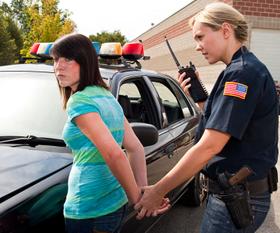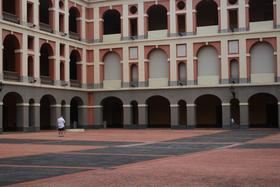Top Rankings
Ottumwa Comm School District ranks among the top 20% of public school district in Iowa for:
Category
Attribute
Diversity
Most diverse schools (Top 1%)
Community Size
Largest student body (number of students) (Top 1%)
For the 2025 school year, there are 3 public high schools serving 1,526 students in Ottumwa Comm School District. This district's average high testing ranking is 1/10, which is in the bottom 50% of public high schools in Iowa.
Public High Schools in Ottumwa Comm School District have an average math proficiency score of 48% (versus the Iowa public high school average of 65%), and reading proficiency score of 53% (versus the 71% statewide average).
Public High School in Ottumwa Comm School District have a Graduation Rate of 83%, which is less than the Iowa average of 87%.
The school with highest graduation rate is Ottumwa High School, with 91% graduation rate. Read more about public school graduation rate statistics in Iowa or national school graduation rate statistics.
Minority enrollment is 49% of the student body (majority Hispanic), which is more than the Iowa public high school average of 27% (majority Hispanic).
Overview
This School District
This State (IA)
# Schools
11 Schools
365 Schools
# Students
4,982 Students
171,507 Students
# Teachers
333 Teachers
11,091 Teachers
Student : Teacher Ratio
15:1
15:1
Student By Grade
District Rank
Ottumwa Comm School District, which is ranked within the bottom 50% of all 325 school districts in Iowa (based off of combined math and reading proficiency testing data) for the 2022-2023 school year.
The school district's graduation rate of 83% has decreased from 91% over five school years.
Overall District Rank
#315 out of 327 school districts
(Bottom 50%)
(Bottom 50%)
Math Test Scores (% Proficient)
53%
68%
Reading/Language Arts Test Scores (% Proficient)
55%
70%
Science Test Scores (% Proficient)
49%
63%
Graduation Rate
83%
90%
Students by Ethnicity:
Diversity Score
0.66
0.45
% American Indian
n/a
1%
% Asian
3%
2%
% Hispanic
26%
13%
% Black
8%
6%
% White
51%
73%
% Hawaiian
10%
1%
% Two or more races
2%
4%
All Ethnic Groups
District Revenue and Spending
The revenue/student of $13,732 in this school district is less than the state median of $16,468. The school district revenue/student has declined by 7% over four school years.
The school district's spending/student of $12,878 is less than the state median of $16,042. The school district spending/student has declined by 7% over four school years.
Total Revenue
$68 MM
$8,262 MM
Spending
$64 MM
$8,048 MM
Revenue / Student
$13,732
$16,468
Spending / Student
$12,878
$16,042
Best Ottumwa Comm School District Public High Schools (2025)
School
(Math and Reading Proficiency)
(Math and Reading Proficiency)
Location
Grades
Students
Rank: #11.
Ottumwa High School
(Math: 53% | Reading: 54%)
Rank:
Rank:
2/
Bottom 50%10
501 E 2nd
Ottumwa, IA 52501
(641) 683-4444
Ottumwa, IA 52501
(641) 683-4444
Grades: 9-12
| 1,239 students
Rank: #22.
Ottumwa Virtual Learning
(Math: 11-19% | Reading: 35-39%)
Rank:
Rank:
1/
Bottom 50%10
1112 N Van Buren
Ottumwa, IA 52501
(641) 684-6597
Ottumwa, IA 52501
(641) 684-6597
Grades: PK-12
| 57 students
Rank: n/an/a
907 Gateway Drive
Ottumwa, IA 52501
(641) 684-6597
Ottumwa, IA 52501
(641) 684-6597
Grades: 9-12
| 230 students
Recent Articles

Opinion: Handcuffing in Public Schools is a Gateway to More Violence
Some districts are banning handcuffing, while others are cuffing kindergarteners simply throwing a temper tantrum. Read this editorial to see why this author believes slapping the cuffs on children鈥檚 wrists only leads to more behavior issues and violence in their adult lives.

Whooping Cough: Should Vaccinations be Required for Public School Enrollment?
Whopping cough is making a comeback, especially amongst children, prompting health officials to encourage pertussis vaccines and boosters. However, should the pertussis vaccine be required for public school enrollment? Learn about current proposed laws and its ramifications.

What are Common Core Standards and Why Do We Need Them?
With schools nationwide adopting common core standards, we鈥檒l take a look at what they are, their benefits, and how they will change the face of public education.





